Elon Musk and the new China-US space race
A Chinese space station's near-collision with Tesla and SpaceX CEO Elon Musk's Starlink satellites has Chinese internet pundits wondering if this is another ploy by the US to contain China's space progress and steal China's space technologies. Is a new China-US space race in the offing? Zaobao's China Desk examines the issue.
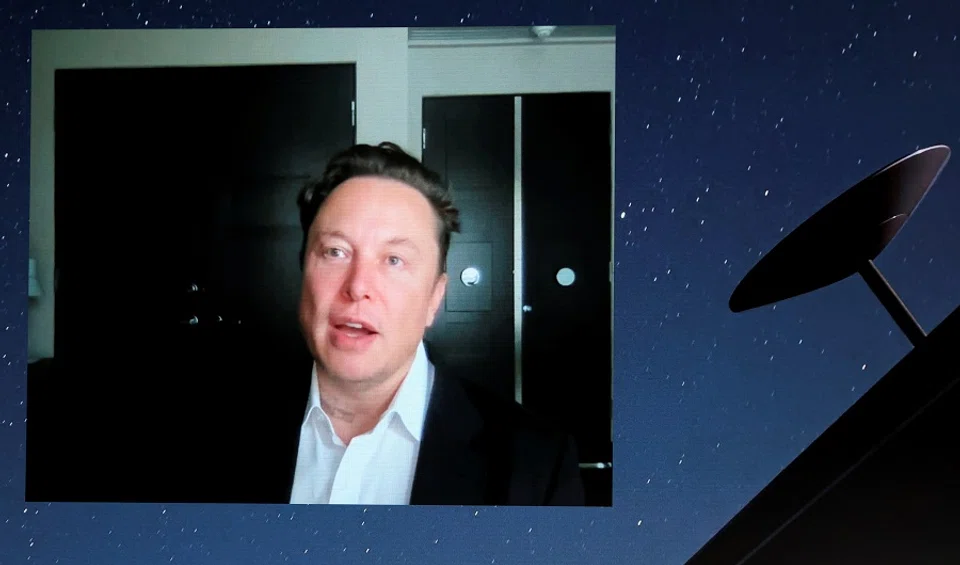
Elon Musk, CEO of American electric vehicle giant Tesla, has once again caught the attention of the Chinese public. Not for his usual outrageous remarks, a tweet about a Chinese poem or about Tesla car quality problems. This time, it is about satellites in the sky.
To be exact, it is about the Starlink satellites launched by SpaceX, Musk's space exploration technologies enterprise.
In early December, China filed a complaint with the United Nations (UN) saying that it had to perform "evasive manoeuvres" in order to avoid a potential collision with Musk's Starlink satellites. Its space station implemented preventive collision avoidance control on 1 July and 21 October 2021.
Accidental near-collisions?
To prevent the incident from recurring, China urged UN Secretary-General António Guterres to advise all parties to the Treaty on Principles Governing the Activities of States in the Exploration and Use of Outer Space that "States Parties to the Treaty shall bear international responsibility for national activities in outer space, including the moon and other celestial bodies, whether such activities are carried on by governmental agencies or by non-governmental entities".
On 28 December, Chinese foreign ministry spokesperson Zhao Lijian also alleged that the US "disregarded its Treaty obligations" and called on the US to "act responsibly to safeguard the safety of in-orbit astronauts and the safe and steady operation of space facilities".
...others pointed the finger at the US for its "carefully disguised big masquerade" to contain China's space progress and to steal China's space technologies, which have seen rapid advancement in recent years.
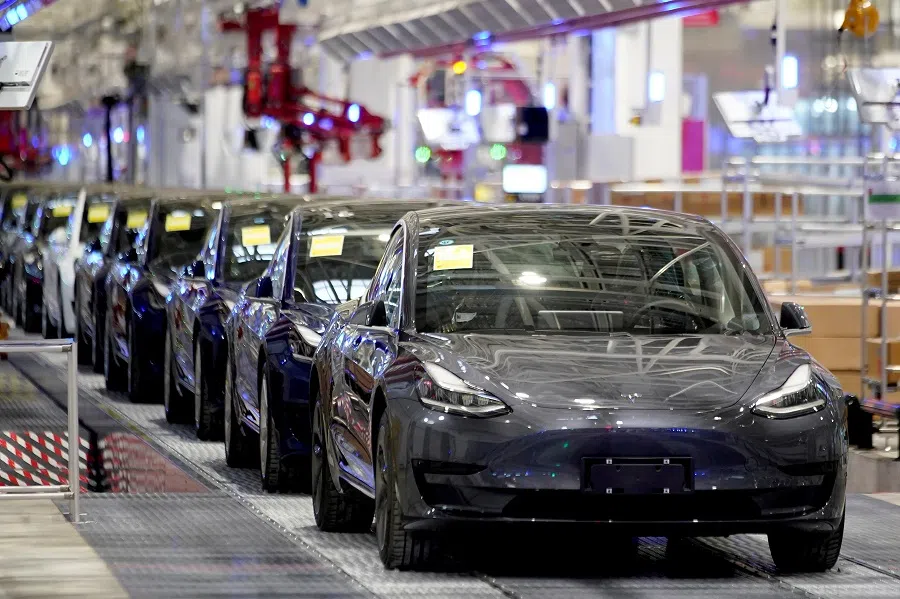
Essentially, the US is being held responsible by China for the launch of the Starlink satellites. After this news was widely reported by Chinese media outlets on 27 December, many Chinese netizens berated Musk for his "malicious intentions". Others even accused Musk of being duplicitous - "profiting from China on the one hand while smearing China on the other". Going by some estimates, Tesla produces more than half of its vehicles in China at present. China is also Tesla's second-biggest market after the US.
Many netizens called for a boycott of Tesla, while others pointed the finger at the US for its "carefully disguised big masquerade" to contain China's space progress and to steal China's space technologies, which have seen rapid advancement in recent years. The well-informed former Global Times editor Hu Xijin, well-versed in hot topics, concurred.
On 27 December, Hu tweeted: "Could Mr. Musk please explain why satellites launched by his Starlink program had two close encounters with China's space station. They were not there to sell Tesla to Chinese taikonauts, were they?"
A 28 December Global Times report said that the Starlink satellites had twice approached the Chinese space station, which had crew members on board both times. In other words, this "constituted dangers to the life or health of the astronauts aboard the China Space Station."
When these satellites are fully deployed, the Starlink network is expected to provide low-latency broadband internet across the globe.
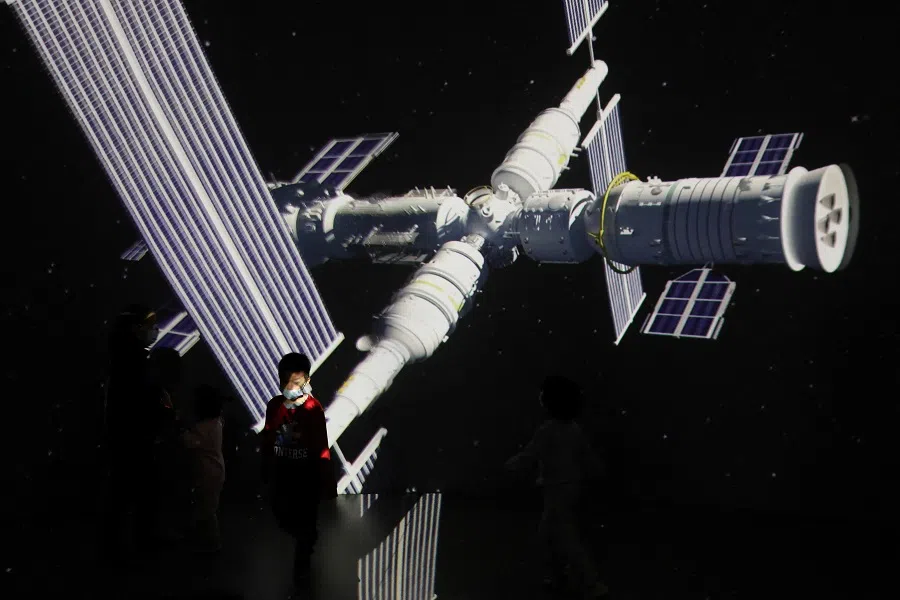
The report also quoted an aerospace expert as saying, "But we can't rule out the possibility that the move is intended to test China's capacity in space to check whether China can accurately track the satellites' trajectory." At the point of writing, neither Musk nor SpaceX have responded to this.
In 2014, Musk proposed the Starlink project which aims to bring satellite internet service to the world. In 2019, it deployed the first 60 Starlink satellites. It is reported that SpaceX has launched nearly 1,900 out of its target of 12,000 satellites. When these satellites are fully deployed, the Starlink network is expected to provide low-latency broadband internet across the globe.
Previously, many Chinese netizens heaped praises on Musk's Starlink project, with some hoping that this would help them get around the Great Firewall of China so that they no longer had to rely on a virtual private network (VPN) to do so. However, amid growing tensions in China-US relations, many Chinese netizens seem to be turning their attention to the possibility of a China-US space race.
The new space race
It is common knowledge that the US and Soviet Union embarked on a 20-year space race, which led to many firsts for humanity - the launch of the first man-made satellite, the first manned flight into space, the first humans on the moon. But after the dissolution of the Soviet Union in 1991, the US was firmly in the driving seat in the space aviation sector, as it no longer had a competitor.
However, in recent years US observers and political figures have given several warnings that the US's leading status is being challenged by China, which is aggressively developing its own space capabilities.
...China started its space sector much later than the US, but after sending astronaut Yang Liwei into space in 2003, the entire country was hit by the "space bug" and started to step up investments in space travel.
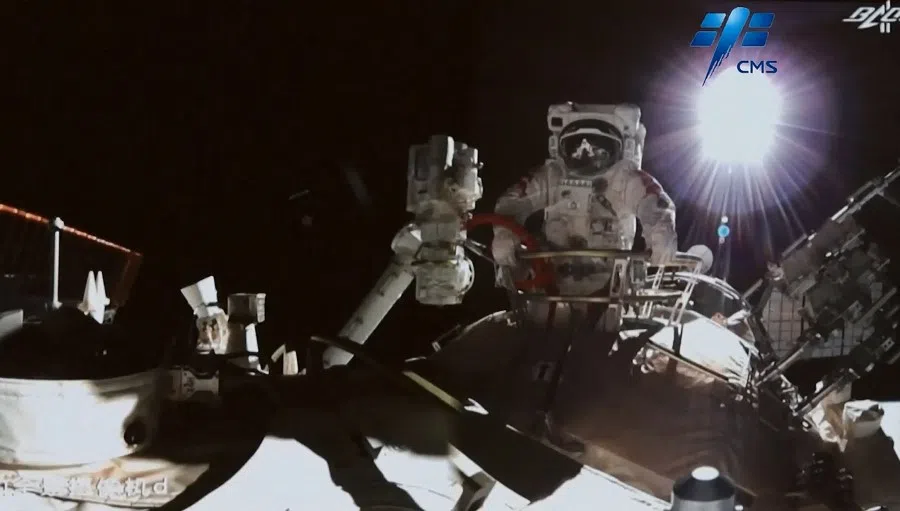
The Wall Street Journal quoted James Head, a professor of geological sciences at Brown University as saying: "China is now building the Silk Road to space." He added that space missions take time, investment and long-term planning, and Beijing is investing strategically.
Paul S. Szymanski, a veteran analyst of space warfare, said in an Air Force journal: "The Chinese are starting from scratch."
Indeed, China started its space sector much later than the US, but after sending astronaut Yang Liwei into space in 2003, the entire country was hit by the "space bug" and started to step up investments in space travel. All this is obvious, from Chang'e 4 that achieved the first soft landing on the far side of the moon in 2019, to Chang'e 5 that brought back lunar samples in November 2020, to Tianwen-1 with its rover that landed on Mars in May 2021 - making China the first country besides the US to send a rover to Mars.
China is aiming to build and operate its first space station - the Tiangong - by next year, which shows its ambition in seeking breakthroughs in the space sector. The US-led International Space Station (ISS) is due to be retired in 2024, and if the US and its partners do not extend its operations, that would leave China's Tiangong as the only manned space station orbiting the earth.
In 2011, the US Congress passed the Wolf Amendment prohibiting any joint scientific research between the US and China related to the National Aeronautics and Space Administration (NASA) or run by the Office of Science and Technology Policy at the White House, meaning that Chinese astronauts would be permanently excluded from the ISS. But now, the tables have turned dramatically.
...China's leader feels that if China can gain a technical edge in space, that is a necessary condition for safeguarding national security, and a sign of progressive ideology.
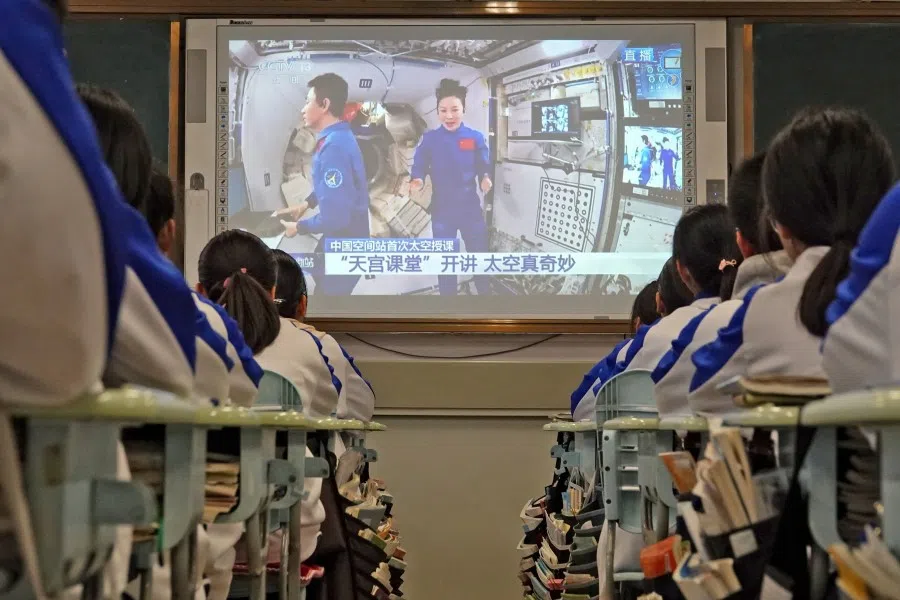
In April 2016, Chinese President Xi Jinping said: "Exploring the vast universe, developing space programs and becoming an aerospace power have always been the dream we've been striving for." In June 2017, on a visit to a People's Liberation Army base in Shanxi, he stressed: "We have to hold on to the dream of being an aerospace power, strengthen the sense of mission, and ramp up technical innovation and hands-on creation, to keep bringing China to new heights in going into space." He has also more than once likened China's aerospace industry to the "Two Bombs, One Satellite" (两弹一星) phase of the Mao Zedong era, referring to the nuclear bomb, ballistic missle and artificial satellite.
It is clear that China's leader feels that if China can gain a technical edge in space, that is a necessary condition for safeguarding national security, and a sign of progressive ideology.
China holds to its dream of going to the moon like the moon goddess Chang'e; Japan is working hard at its plan for a manned moon landing by the second half of the 2020s; last month, NASA said Americans will once again land on the moon in 2025 at the earliest. With various countries jostling to land on the moon, the geostrategic competition is extending to space. If they can put aside political factors and work together to unveil the secrets of the moon and the universe, that would be good news for humanity.
Related: From earth to space: India and China's space programmes gear up for intense competition ahead | Will the US be left out of China's space station projects? | China's strides in technology good for US and the world | America turning to state intervention to win US-China tech war | What's real (and not) about China's hypersonic weapons tests


![[Big read] When the Arctic opens, what happens to Singapore?](https://cassette.sphdigital.com.sg/image/thinkchina/da65edebca34645c711c55e83e9877109b3c53847ebb1305573974651df1d13a)


![[Video] George Yeo: America’s deep pain — and why China won’t colonise](https://cassette.sphdigital.com.sg/image/thinkchina/15083e45d96c12390bdea6af2daf19fd9fcd875aa44a0f92796f34e3dad561cc)